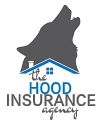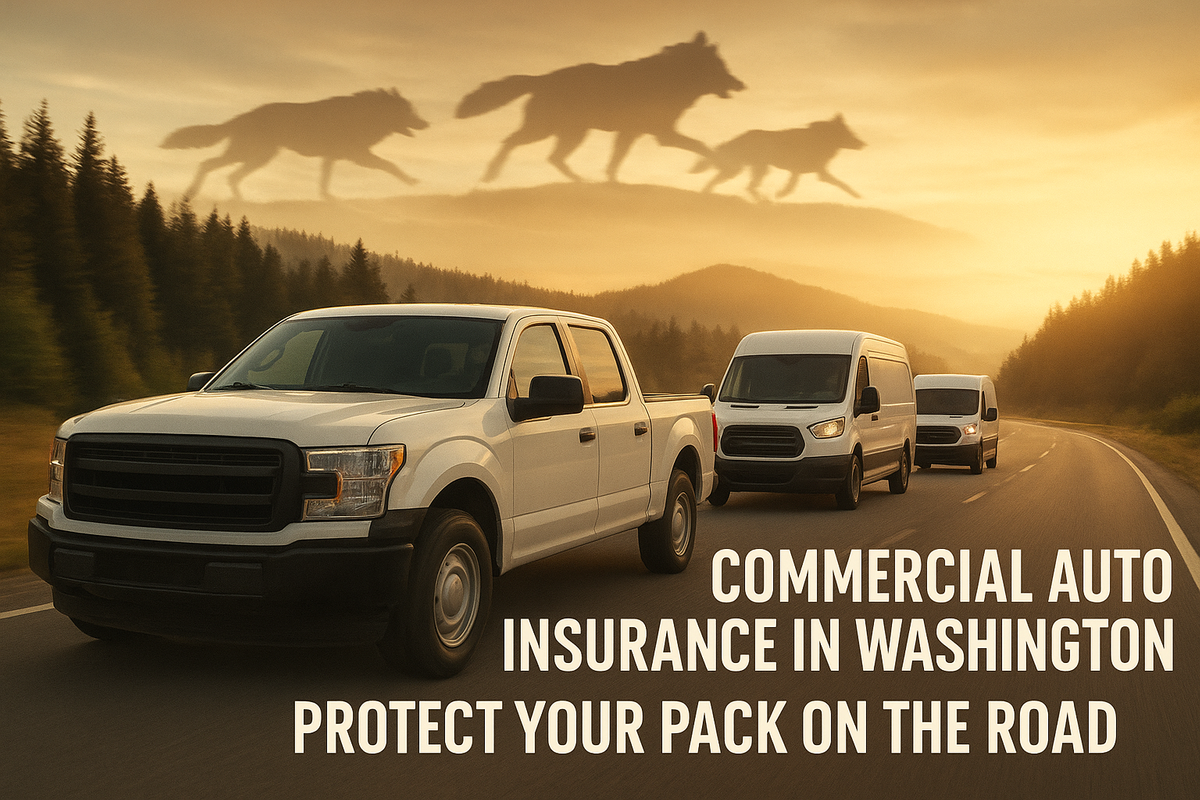Whether you’re a trucker hauling across I-90 or a mobile mechanic serving Lynnwood, your vehicles are the heart of your pack. In Washington, personal auto policies aren’t enough to protect you from the unique risks of business driving. Commercial auto insurance is built for these challenges, giving your fleet the robust protection it needs to stay on the road—and keep your business out of legal trouble.
At Hood Insurance Agency, we believe protection is more than a policy—it’s a principle. Like a well-coordinated wolf pack, we make sure no vehicle gets left behind.
In this guide, we’ll explore commercial auto insurance in Washington State, from essential coverages to the specialized needs of different industries, with a few lessons from the wild along the way.
Why Personal Auto Insurance Doesn’t Cut It for WA Businesses
Personal auto insurance is designed for commuting, errands, and personal use. When you use your vehicle for business—hauling tools, delivering goods, or transporting passengers—you’re entering a different kind of territory.
If an accident occurs while your personal insurer discovers business use, your claim can be denied. That leaves you personally liable for damages, medical bills, and legal fees—risks that can turn even a small mishap into a full-blown attack on your business.
Commercial auto policies are designed for these higher stakes, with higher liability limits and endorsements specific to business operations. In other words: your pack deserves a guardian, not a paper shield.
Essential Coverages for Washington Businesses
Every commercial auto policy in Washington should include:
-
Liability Coverage: Covers bodily injury and property damage you cause to others. Washington requires minimum limits, but higher limits ($300,000+) protect your assets. Think of liability coverage as the alpha keeping your pack safe—if one member stumbles, the rest don’t have to bear the bite.
-
Physical Damage Coverage: Protects your vehicles themselves.
-
Collision: Repairs or replacement after an accident.
-
Comprehensive: Covers theft, vandalism, fire, or severe weather.
-
-
Medical Payments / PIP: Pays medical expenses for you or passengers after an accident, regardless of fault.
-
Hired & Non-Owned Auto (HNOA): Covers vehicles you rent, borrow, or that employees drive for work.
Wolf tip: Your fleet isn’t just a collection of vehicles—it’s a pack. Treat it like one.
For a deeper dive into coverage options, visit our Commercial Auto Insurance page.
.
Trucking & Hauling: Intrastate vs. Interstate
Trucking has some of the most complex insurance needs. Between high-value cargo and long distances, your vehicles require specialized protection.
Intrastate
-
Operates exclusively within Washington.
-
Must comply with state regulations and licensing via the Washington Utilities & Transportation Commission (WUTC).
-
Liability minimums apply, but higher coverage is strongly recommended.
Interstate
-
Crosses state lines, regulated by the Federal Motor Carrier Safety Administration (FMCSA).
-
Requires a USDOT number and often an MC number.
-
FMCSA mandates liability limits ranging from $750,000 to over $5 million depending on freight type.
-
Your insurance carrier will file necessary forms (Form E or H) to ensure compliance.
Cargo Insurance
Liability coverage protects your truck, but not the cargo itself. Motor Truck Cargo Insurance protects freight from loss, theft, or damage. Household movers may refer to this as Shipper’s Interest or Full Value Protection.
Wolf note: Your trucks are the hunting pack, but the cargo is the prize. Protect both.
Specialized Coverage for Niche Industries
Livery & NEMT (Taxis, Limos, Non-Emergency Medical Transport)
Transporting people for hire carries extra risk. Livery insurance ensures passengers and vehicles are covered, while NEMT coverage may add protection for wheelchair lifts and medical equipment. Even the most well-behaved wolf pack keeps an eye on new members—these policies do the same.
Couriers & Delivery Services
From food delivery to courier vans, high mileage and frequent stops create unique exposures. Specialized delivery insurance accounts for these factors so your business doesn’t get caught chasing claims.
Mobile Fleets & Contractors
Plumbers, electricians, mobile mechanics, and other service providers rely on vehicles as mobile workshops. Standard commercial coverage protects the vehicle, but tools and equipment often require a BOP or inland marine policy. This ensures your pack’s tools are protected whether on site or in transit.
Wolf insight: Your van isn’t just a vehicle—it’s the alpha of your mobile pack of tools, gear, and revenue.
Tips to Optimize Coverage & Manage Costs
-
Bundle Policies: Combine with a BOP or general liability to save money.
-
Maintain Clean Driving Records: Fewer claims = lower premiums.
-
Use Telematics or GPS: Monitor fleet safety and driver behavior.
-
Review Coverage Annually: Adjust limits and endorsements as your business evolves.
Frequently Asked Questions
Q: Does personal auto insurance cover business use?
A: No. Using a personal vehicle for work can void your claim, leaving you liable.
Q: What is Hired & Non-Owned Auto coverage?
A: Protects your business when employees drive personal cars for work, or when you rent/borrow vehicles.
Q: What coverage do movers or truckers need in WA?
A: Specialized cargo insurance, intrastate or interstate liability, and compliance with WUTC or FMCSA regulations.
Q: How about couriers, livery, or NEMT operators?
A: High liability limits, passenger protection, and coverage for specialized equipment.
Q: Mobile contractors—plumbers, electricians, landscapers?
A: Vehicle coverage plus BOP or inland marine policies for tools and equipment.
Protect Your Pack Today
Your vehicles keep your business moving—make sure no member of your pack gets left behind. Commercial auto insurance keeps your fleet, drivers, and livelihood protected against Washington-specific risks.

